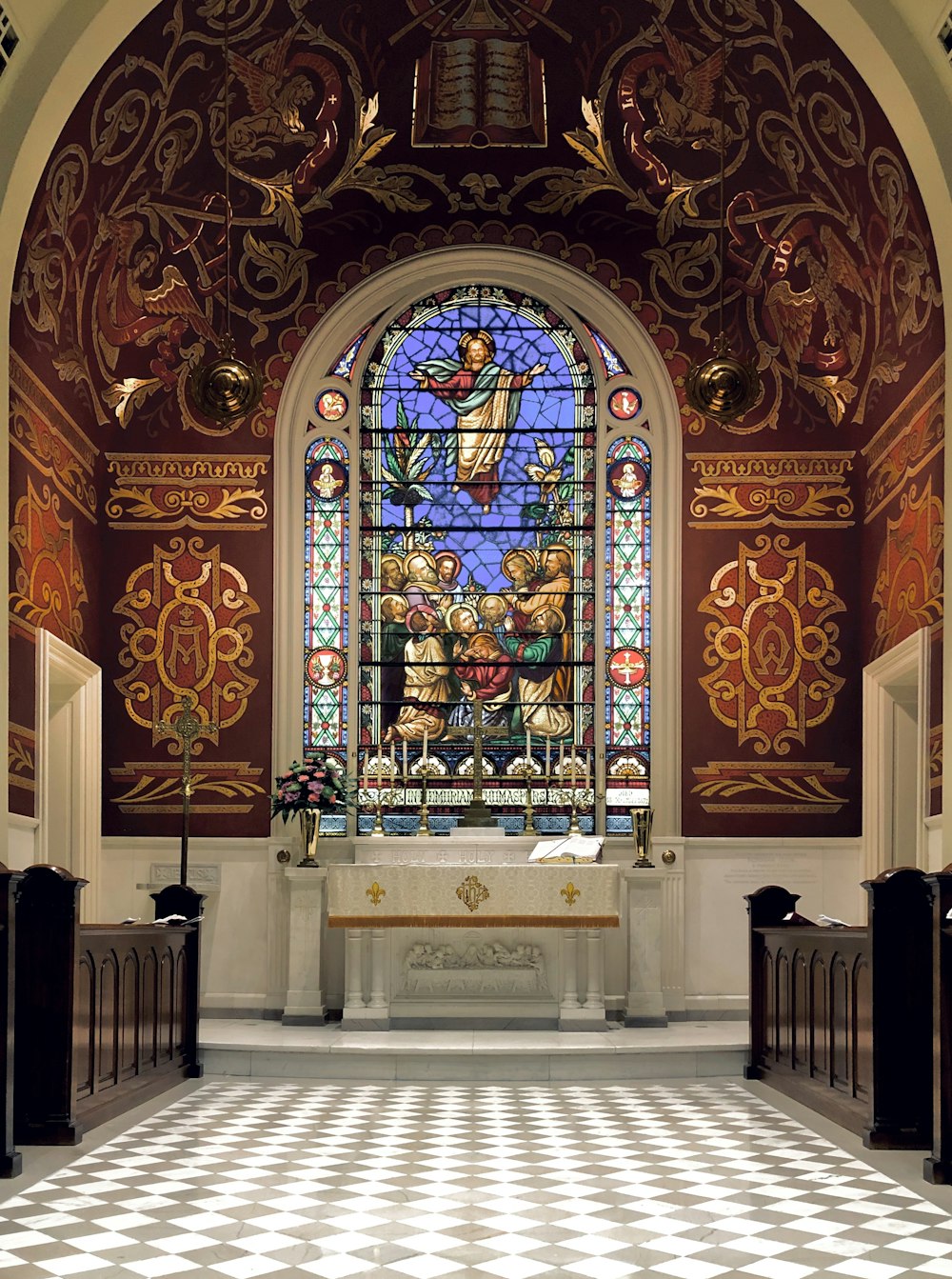Trust the Church of God implicitly even when your natural judgment would take a different course from hers and would induce you to question her prudence or correctness. Recollect what a hard task the Church has; how she is sure to be criticized and spoken against, whatever she does; recollect how much she needs your loyal and and tender devotion; recollect too how long is the experience gained in eighteen hundred years; and what a right she has to claim your assent to principles which have had so extended and triumphant trial. Thank her that she has kept the faith safe for so many generations and do your part in helping her to transmit it to generations after you. + St. John Henry Newman
Sacraments
But one soldier thrust his lance into His side, and immediately blood and water flowed out. John 19:34

“Christ is in the Father by reason of his divine nature, we are in him by reason of his human birth, and he is in us through the mystery of the sacraments.” +St. Hilary, bishop (315-367 A.D.)
“Our Redeemer’s visible presence has passed into the sacraments.” + St. Leo the Great, pope (400-461 A.D.)
“The Son of God is one with God by nature; the Son of Man is one with him in his person; we, his body, are one with him sacramentally.” + Blessed Isaac of Stella, abbot (1100 – 1169 A.D.)
“We shall share Christ’s power, if, through holy faith and the sacraments, we willingly accept the grace Christ earned for us, and live by that grace and in obedience to Christ.” + St. Charles Borromeo, bishop (1538-1584 A.D.)
“Enjoy the fragrance of eternal life, breathed on you by means of the sacraments.” + St. Ambrose, bishop (340-397 A.D.)
Confession
Whose sins you forgive are forgiven them, and whose sins you retain are retained.” John 20:23

“It is better for a man to confess his sins than to harden his heart.” + St. Clement I, pope (Unknown – 100 A.D.)
“The sinner who is forgiven is made whiter than snow.” + St. Ambrose, bishop (340-397 A.D.)
“God’s will is to save us, and nothing pleases him more than our coming back to him with true repentance.” + St. Maximus the Confessor, abbot (580-662 A.D.)
“I have shown you five paths of repentance: condemnation of your own sins, forgiveness of our neighbor’s sins against us, prayer, almsgiving and humility. Do not be idle, then, but walk daily in all these paths.” + St. John Chrysostom, bishop (347-407 A.D.)
“Like a dry tree which puts forth shoots when watered, the soul bears the fruit of holiness when repentance has made it worthy of receiving the Holy Spirit.” + St. Cyril of Jerusalem, bishop (315-387 A.D.)
“Here, in our hearts, Christ takes up his abode together with the Father, saying as he enters: Today salvation has come to this house.” + St. Anastasius of Sinai, bishop (Died c. 700 A.D.)
“If any during this life are changed out of fear of God and pass from an evil life to a good one, they pass from death to life and later they shall be transformed from s shameful state to a glorious one.” + St. Fulgentius of Ruspe, bishop (467-533 A.D.)
Baptism
Go, therefore, and make disciples of all nations, baptizing them in the name of the Father, and of the Son, and of the holy Spirit, Matthew 28:19
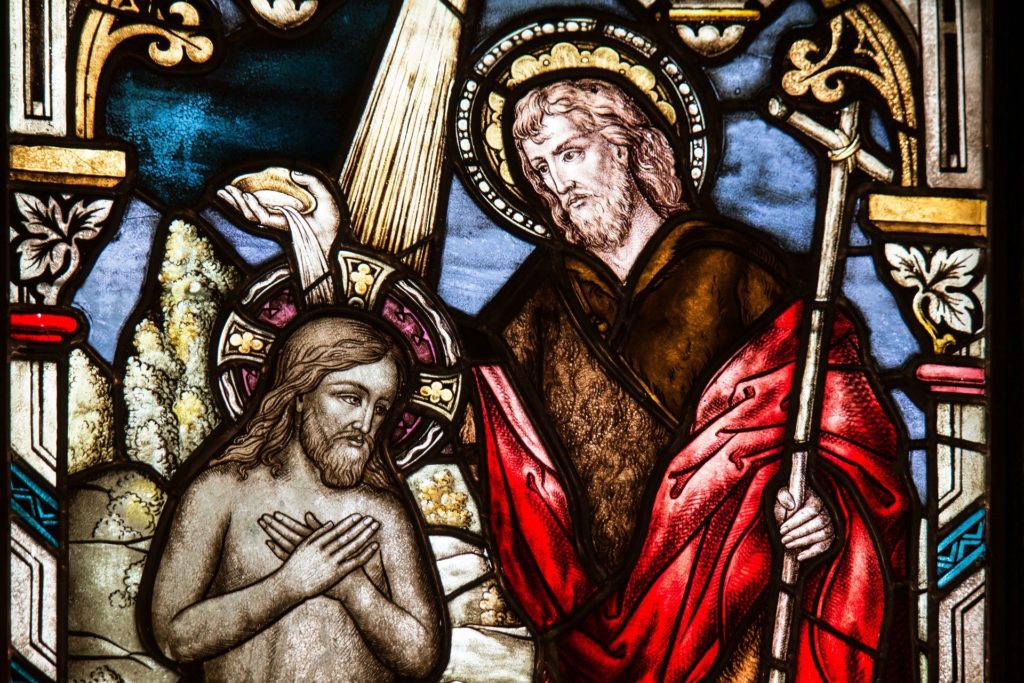
“Our Lord made a covenant with us through baptism in order to give us eternal life.” + St. Basil the Great, bishop (329-379 A.D.)
“Christ is the first to be baptized, then, so that Christians will follow after him with confidence.” + St. Maximus of Turin, bishop (380-465 A.D.)
“Someone might ask: Why would a holy man desire baptism?‟ Listen to the answer: Christ is baptized, not to be made holy by the water, but to make the water holy, and by his cleansing to purify the waters which he touched.” + St. Maximus of Turin, bishop (380-465 A.D.)
“Our Lord commanded us to baptize in the name of the Father and of the Son and of the Holy Spirit.” + St. Hilary, bishop (315-367 A.D.)
“Anyone who wishes to offer himself to God in the tent of Christ, which is the Church, must first bathe in the spring of holy baptism.” + St. Peter Damian, bishop (1840-1889 A.D.)
“The catechumen believes in the cross of the Lord with which he too is signed, but unless he is baptized in the name of the Father, and of the Son and of the Holy Spirit he cannot receive the forgiveness of sins or the gift of spiritual grace.” + St. Ambrose, bishop (340-397 A.D.)
“As Moses in his role of prophet threw wood into the spring of Marah, so also the priest sends out into the fountain of baptism the proclamation of the Lord’s cross, and the water becomes sweet, ready for the giving of grace.” + St. Ambrose, bishop (340-397 A.D.)
“Whoever goes down into these waters of rebirth with faith renounces the devil and pledges himself to Christ.” + St. Hippolytus, priest (170-236 A.D.)
“When we come to the sign of the Lord in the sacrament of baptism we are freed of chains and liberated by the blood of Christ and by his name.” + St. Pacian, bishop (310-391 A.D.)
“We imitate Christ’s death by being buried with him in baptism.” + St. Basil the Great, bishop (329-379 A.D.)
“The seed of Christ, that is, the Spirit of God, brings forth the new man, nourished in the womb of his mother, welcomed at his birth at the font through the hands of the priests, while faith presides over the ceremony.” + St. Pacian, bishop (310-391 A.D.)
“Sin is washed away by the waters of the font; the Holy Spirit is poured forth in the chrism; and we obtain both of these gifts through the hands and the mouth of the priest.” + St. Pacian, bishop (310-391 A.D.)
“By the Spirit, from the womb of the Virgin, was born our head, the Son of Man; and by the same Spirit, in the waters of baptism, we are reborn as his body and as sons of God.” + Blessed Isaac of Stella, abbot (1100-1169 A.D.)
“Before our baptism we were sanctuaries of the devil; but after our baptism we merited the privilege of being temples of Christ.” + St. Caesarius of Arles, bishop (468-542 A.D.)
“Baptism cleanses the soul from the pollution of worldly thoughts and inclinations: You will wash me, says the psalmist, and I shall be whiter than snow.” + St. Basil the Great, bishop (329-379 A.D.)
“We know perfectly well that baptism, besides washing away our sins and bringing us the gift of the Holy Spirit, is a symbol of the sufferings of Christ.” + From the Jerusalem Catecheses
“We who have been reborn through the sacrament of baptism experience intense joy when we feel within us the first stirrings of the Holy Spirit.” + St. Hilary, bishop (315-367 A.D.)
“Baptism is a kind of symbol and type of the Lord’s death, which is why Saint Paul says: If we have shared with God’s Son in a death like his, we shall certainly share in his resurrection.” + Theodoret of Cyr, bishop (393-460 A.D.)
“We receive the sacrament of baptism only once because there was only one death and one resurrection for the salvation of the world, and baptism is its symbol.” + St. Basil the Great, bishop (329-379 A.D.)
“Through the baptism that liberates us from change and decay we have become one body; through the Spirit we have become one in soul.” + St. Irenaeus, bishop (140-203 A.D.)
“In place of earth the Spirit reopens heaven to us and gladly admits us into paradise, giving us even now greater honor than the angels, and by the holy waters of baptism extinguishing the unquenchable fires of hell.” + Didymus of Alexandria, bishop (313-398 A.D.)
“Through the sacrament of baptism you have become a temple of the Holy Spirit. Do not drive away so great a guest by evil conduct and become again a slave to the devil, for your liberty was bought by the blood of Christ.” + St. Leo the Great, pope (400-461 A.D.)
“To Jews and Greeks alike God bestows salvation through baptism, offering baptism as a common grace for all.” + St. Proclus of Constantinople, bishop (Died c. 446 A.D.)
“Christ puts an end to our former life, and through the regenerating waters of baptism in which we imitate his death and resurrection, he gives us the beginning of a new life.” + Pseudo-Chrysostom
“All mankind is called to the wedding feast, for he is a generous lover. Once the crowd has assembled, the bridegroom decides who will enter the wedding feast. This is a figure for baptism.” + St. Cyril of Jerusalem, bishop (315-387 A.D.)
“As we have died with Christ, and have been buried and raised to life with him, so we bear him within us, both in body and in spirit, in everything we do.” + St. Leo the Great, pope (400-461 A.D.)
“He who is reborn in baptism is a new man.” + St. Peter Damian, bishop (1840-1889 A.D.)
Eucharist
Then he took the bread, said the blessing, broke it, and gave it to them, saying, “This is my body, which will be given for you; do this in memory of me.” And likewise the cup after they had eaten, saying, “This cup is the new covenant in my blood, which will be shed for you. Luke 22:19-20
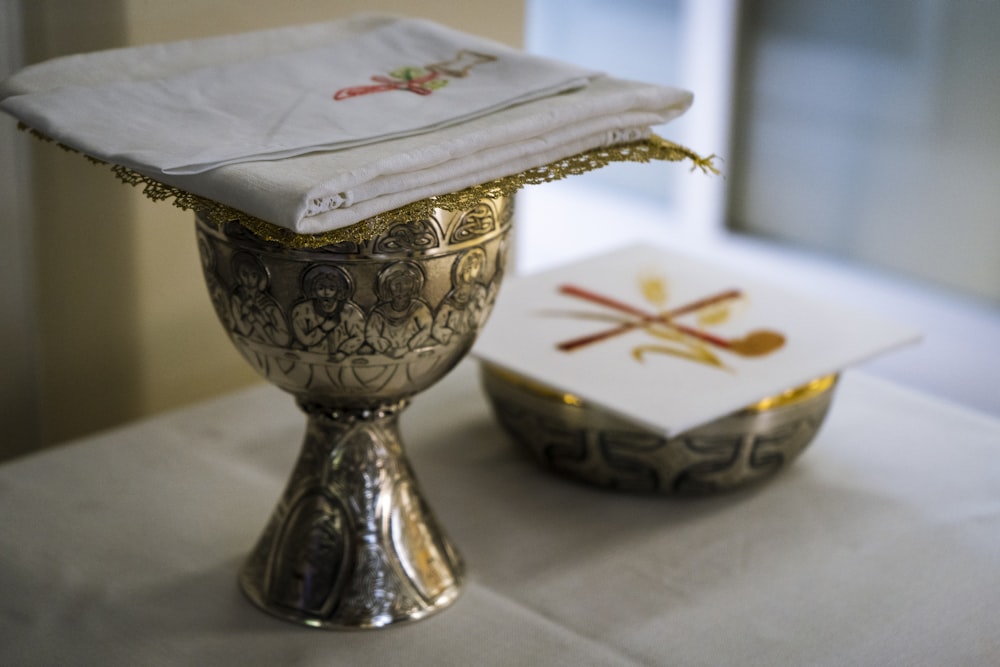
“As Christ was on the point of leaving the world to go to the Father, after celebrating the Passover with his disciples, he left the Eucharist as a perpetual memorial of his passion.” + St. Thomas Aquinas, priest (1225-1274 A.D.)
“To ensure that the memory of so great a gift would abide with us forever, Christ left his body as food and his blood as drink for the faithful to consume in the form of bread and wine.” + St. Thomas Aquinas, priest (1225-1274 A.D.)
“We draw life from Christ’s flesh just as he draws life from the Father.” + St. Hilary, bishop (315-367 A.D.)
“Christ’s body is given to us under the symbol of bread, and his blood is given to us under the symbol of wine, in order to make us by receiving them one body and blood with him.” + From the Jerusalem Catecheses
“Do not regard the Eucharistic elements as ordinary bread and wine: they are in fact the body and blood of the Lord, as he himself has declared. Whatever your senses may tell you, be strong in faith.” + From the Jerusalem Catecheses
“All who receive the sacred flesh of Christ are united with him as members of his body.” + St. Cyril of Alexandria, bishop (375-444 A.D.)
“Do this in remembrance of me. Two things should be noted here. The first is the command that we should use this sacrament, which is indicated when he says: Do this. The second is that this sacrament commemorates the Lord’s going to death for our sake.” + St. Albert the Great, bishop (1206-1280 A.D.)
“No one feeds the guests with his very self, yet that is what Christ the Lord does. He invites and he is the food and drink.” + St. Augustine, bishop (354-430 A.D.)
“Just as bread from the earth, when it receives the invocation of God, is no longer common bread but the Eucharist, made up of two elements, one earthly and one heavenly, so also our bodies, in receiving the Eucharist, are no longer corruptible, for they have the hope of resurrection.” + St. Irenaeus, bishop (140-203 A.D.)
“The food that you receive, that living bread which came down from heaven, supplies the very substance of eternal life, and whoever will eat it will never die, for it is the body of Christ.” + St. Ambrose, bishop (340-397 A.D.)
“Food is common to the wise and the foolish alike, and for the poor man food is wealth.” + St. Jerome, priest (340-420 A.D.)
“Having Christ’s body and blood in our members, we become bearers of Christ and sharers, as Saint Peter says, in the divine nature.” + From the Jerusalem Catecheses
“Our sharing in the Lord’s body and blood when we eat his bread and drink his cup teaches us that we should die to the world, and that we should keep our life hidden with Christ in God, crucifying our flesh with its vices and evil desires.” + St. Fulgentius of Ruspe, bishop (467-533 A.D.)
“One man has died for all, and now in every church in the mystery of bread and wine he heals those for whom he is offered sacrifice, giving life to those who believe and holiness to those who consecrate the offering.” + St. Gaudentius of Brescia, bishop (Unknown – 410 A.D.)
“No one may share the Eucharist with us unless he believes that what we teach is true, unless he is washed in the regenerating waters of baptism for the remission of his sins, and unless he lives in accordance with the principles given us by Christ.” + St. Justin, martyr (103-165 A.D.)
“If our flesh is not saved, then the Lord has not redeemed us with his blood, the eucharistic chalice does not make us sharers in his blood, and the bread we break does not make us sharers in his body.” + St. Irenaeus, bishop (140-203 A.D.)
“I no longer take pleasure in perishable food or in the delights of this world. I want only God’s bread, which is the flesh of Jesus Christ, formed of the seed of David, and for drink I crave his blood, which is love that cannot perish.” + St. Ignatius, bishop and martyr (35-98 A.D.)
“Be careful, to take part only in one Eucharist; for there is only one flesh of our Lord Jesus Christ and one cup to unite us with his blood, one altar and one bishop with the presbyters and deacons, who are his fellow servants.” + St. Ignatius, bishop and martyr (35-98 A.D.)
“We believe that the Word became flesh and that we receive his flesh in the Lord’s Supper. How then can we fail to believe that he really dwells within us?” + St. Hilary, bishop (315-367 A.D.)
“The special note of the paschal feast is this: the whole Church rejoices in the forgiveness of sins.” + St. Leo the Great, pope (400-461 A.D.)
“The body of Christ gives life to those who receive it.” + St. Cyril of Alexandria, bishop (375-444 A.D.)
“If you thirst, drink of the fountain of life; if you are hungry, eat the bread of life.” + St. Columban, abbot (545-615 A.D.)
“The Lord calls himself the vine and those united to him branches in order to teach us how much we shall benefit from our union with him, and how important it is for us to remain in his love.” + St. Cyril of Alexandria, bishop (375-444 A.D.)
“Sins are forgiven equally for all, but communion in the Holy Spirit is given in the measure of each one’s faith.” + St. Cyril of Jerusalem, bishop (315-387 A.D.)
“In those days, when the destroying angel saw the blood on the doors he did not dare to enter, so how much less will the devil approach now when he sees, not that figurative blood on the doors, but the true blood on the lips of believers, the doors of the temple of Christ.” + St. John Chrysostom, bishop (347-407 A.D.)
“In proportion to God’s need of nothing is man’s need for communion with God.” + St. Irenaeus, bishop (140-203 A.D.)
“We hold the Eucharist in our hands, we receive it in our mouths, and we accept it in our hearts.” + St. Gaudentius of Brescia, bishop (unknown – 410 A.D.)
Marriage
For this reason a man shall leave his father and mother [and be joined to his wife], and the two shall become one flesh.’ So they are no longer two but one flesh. Therefore what God has joined together, no human being must separate.” Mark 10:7-9
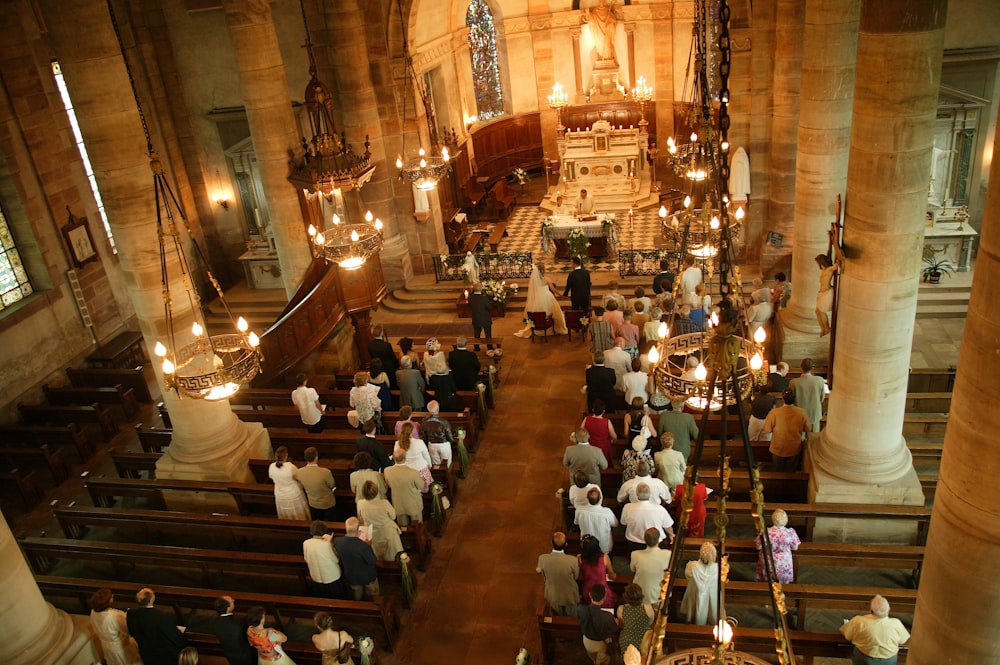
“Your children must share in the way of discipleship in Christ.” + St. Clement I, pope (unknown – 100 A.D.)
“Wives must raise their children in the discipline that comes from fear of God.” + St. Polycarp, bishop and martyr (69-155 A.D.)
“Do not refrain from chastising your son or daughter, but bring them up from childhood in the fear of the Lord.” + St. Barnabas, apostle (unknown – 61 A.D.)
“Your children must learn how effective humility is before God, what chaste love can accomplish with God, how good and noble is the fear of God, for it brings salvation to all who possess it and who live holy lives with a pure heart.” + St. Clement I, pope (unknown – 100 A.D.)
“Children should be entrusted only to good and God-fearing teachers.” + St. John Leonardi, priest (1541-1609 A.D.)
“Nothing should be left untried that can train children from early childhood in good morals and in the earnest practice of Christianity. To this end nothing is more effective than pious instructions in Christian doctrine.” + St. John Leonardi, priest (1541-1609 A.D.)
Holy Orders
Jesus said to them again, “Peace be with you. As the Father has sent me, so I send you.” John 20:21
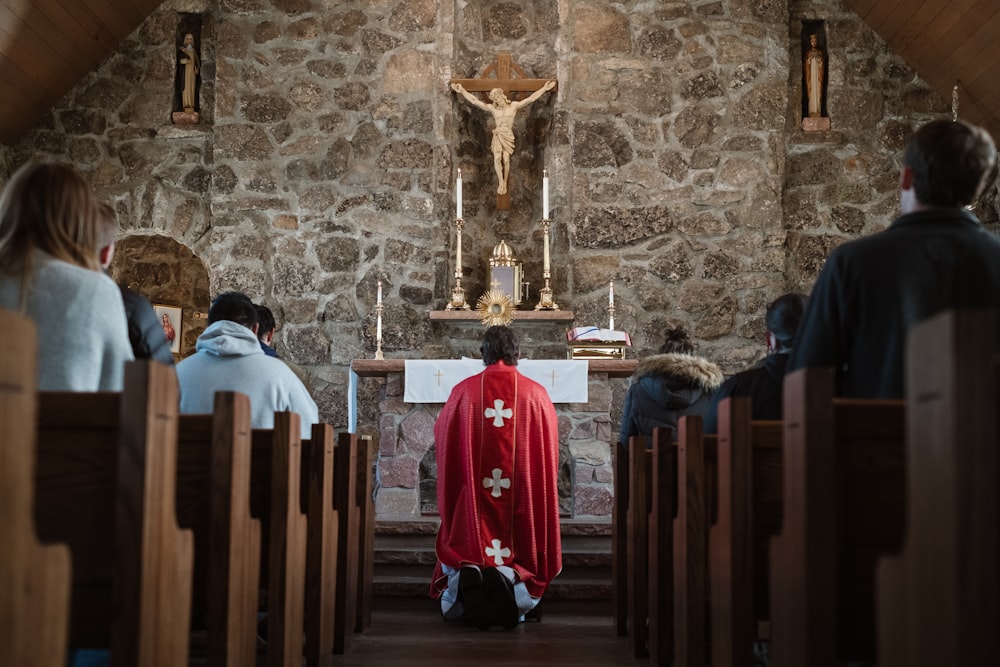
“Our Lord Jesus Christ has appointed certain men to be guides and teachers of the world and stewards of his divine mysteries.” + St. Cyril of Alexandria, bishop (375-444 A.D.)
“Anyone ordained a priest undertakes the task of preaching, so that with a loud cry he may go on ahead of the terrible judge who follows.” + St. Gregory the Great, pope (540-604 A.D.)
“What is more priestly than to promise the Lord a pure conscience and to offer him in love unblemished victims on the altar of one’s heart?” + St. Leo the Great, pope (400-461 A.D.)
“Those who are called to the table of the Lord must glow with the brightness that comes from the good example of a praiseworthy and blameless life.” + St. John of Capistrano, priest (1386-1456 A.D.)
“Truly the unclean, immoral cleric is trampled underfoot like worthless manure. He is saturated with the filth of vice and entangled in the chains of sin.” + St. John of Capistrano, priest (1386-1456 A.D.)
“Now a light does not illumine itself, but instead it diffuses its rays and shines all around upon everything that comes into its view. So it must be with the glowing lives of upright and holy clerics.” + St. John of Capistrano, priest (1386-1456 A.D.)
“Holy clerics own lives must be an example to others, showing how they must live in the house of the Lord.” + St. John of Capistrano, priest (1386-1456 A.D.)
“My brothers, you must first realize that for us churchmen, nothing is more necessary than meditation.” + St. Charles, bishop (1538-1584 A.D.)
“If teaching and preaching is your job, then study diligently and apply yourself to whatever is necessary for doing the job well. Be sure that you first preach by the way you live.” + St. Charles, bishop (1538-1584 A.D.)
“When one practices first and preaches afterwards, one is really teaching with power.” + St. Gregory the Great, pope (540-604 A.D.)
“The name of Jesus is the glory of preachers, because the shining splendor of that name causes his word to be proclaimed and heard.” + St. Bernardine of Siena, priest (1380-1444 A.D.)
“No one can be a good shepherd unless he is one with Christ in charity. Through this we become members of the true shepherd.” + St. Thomas Aquinas, priest (1225-1274 A.D.)
“Know the difference between a good and a bad shepherd: the good shepherd cares for the welfare of his flock, but the bad shepherd cares only for his own welfare.” + St. Thomas Aquinas, priest (1225-1274 A.D.)
“We can speak only with a heavy heart of so few laborers for such a great harvest, for although there are many to hear the good news there are only a few to preach it.” + St. Gregory the Great, pope (540-604 A.D.)
“That the harvest is good but the laborers are few cannot be said without a heavy heart, for although there are many to hear the good news there are only a few to preach it.” + St. Gregory the Great, pope (540-604 A.D.)
“Certainly, if there are good sheep there are also good shepherds; good sheep give rise to good shepherds.” + St. Augustine, bishop (354-430 A.D.)
“Will there be shepherds who seek what is Christ’s and not what is theirs, and will they be found? There will indeed be such shepherds, and they will indeed be found; they are not lacking, nor will they be lacking in the future.” + St. Augustine, bishop (354-430 A.D.)
“All shepherds should speak with one voice in Christ, not with different voices.” + St. Augustine, bishop (354-430 A.D.)
“To stand fast in battle on the day of the Lord means to oppose the wicked enemy out of love for what is right.” + St. Gregory the Great, pope (540-604 A.D.)
“The apostle Paul did not seek what was his but what was Christ’s.” + St. Augustine, bishop (354-430 A.D.)
“True shepherds take care of their sheep, not themselves.” + St. Augustine, bishop (354-430 A.D.)
“In such a difficult mission one has to be holy.” + St. Peter Chanel, (1803-1841 A.D.)
